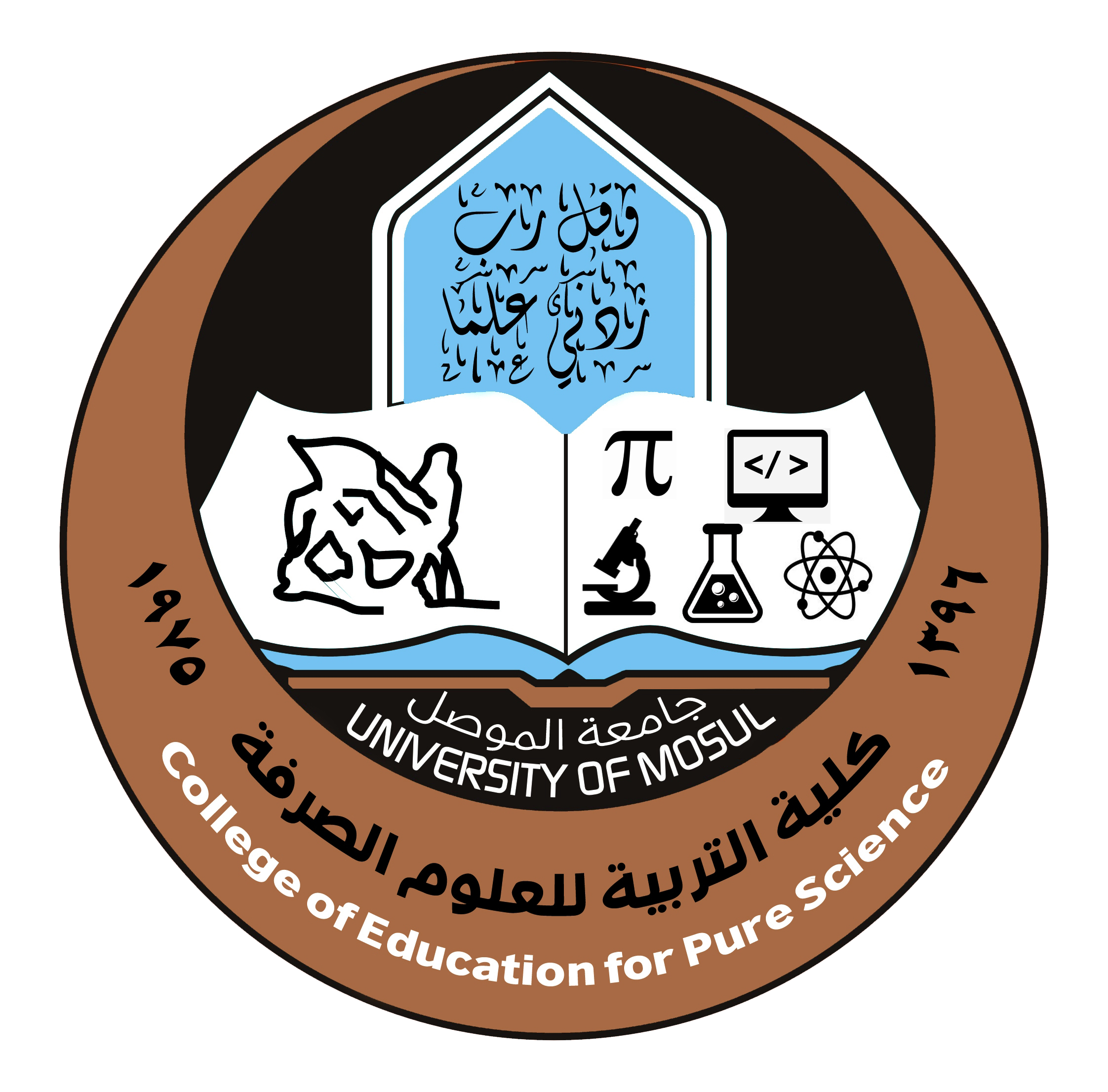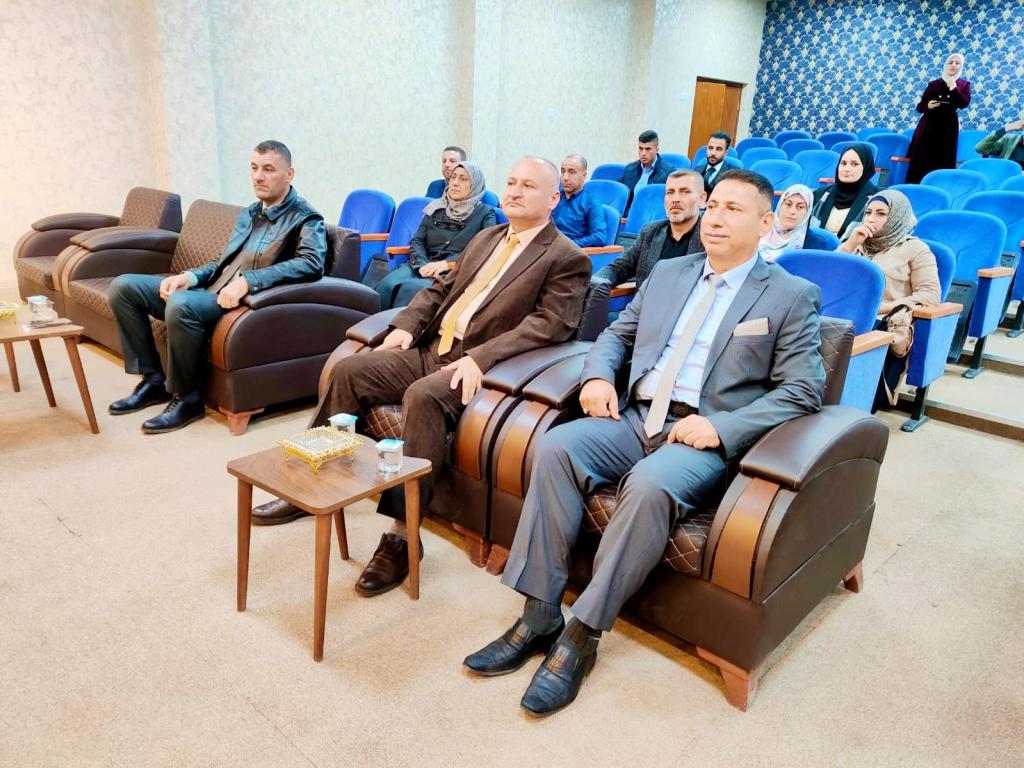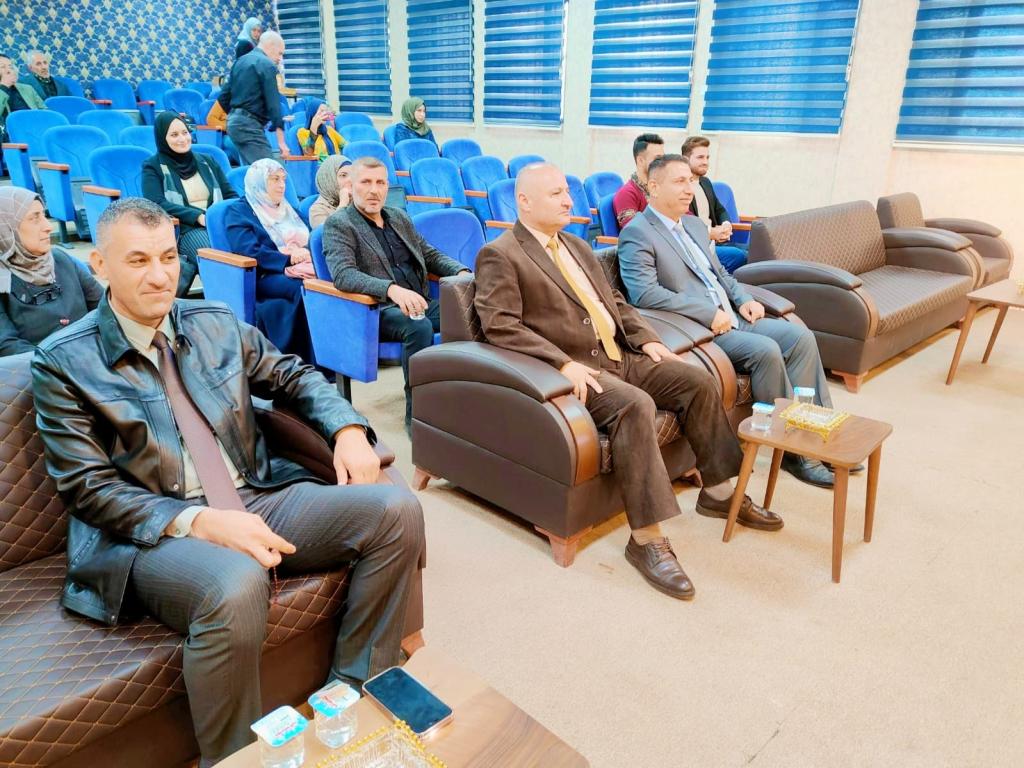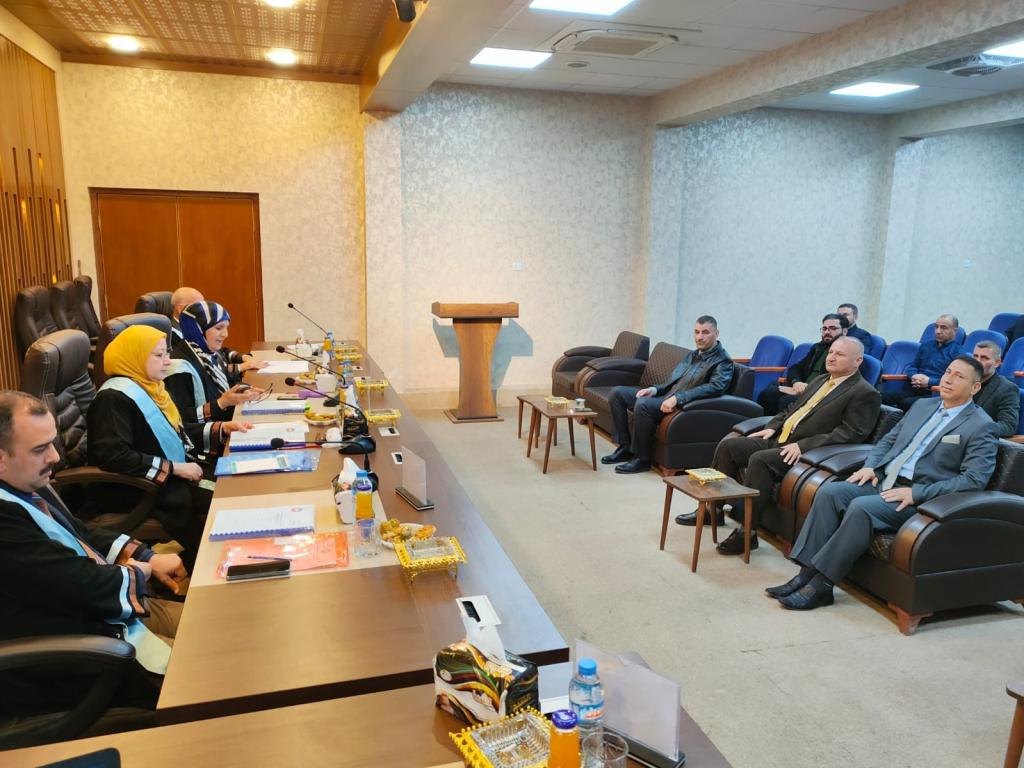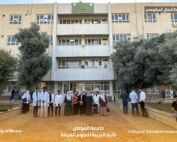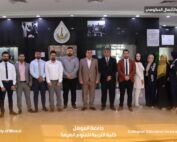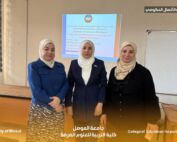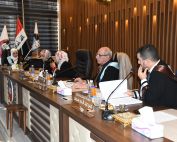22 November، 2022
Master Thesis Viva-Biology Department
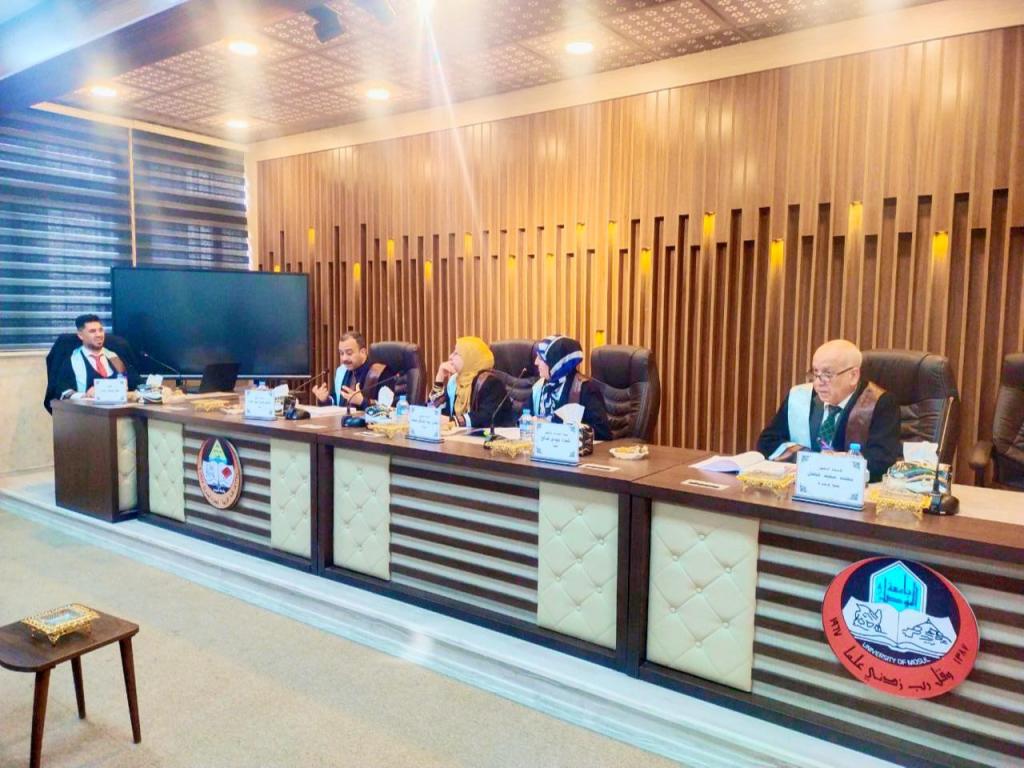
Master Thesis Viva in the College of Education for Pure Science entitled” The effect of adding hydrogel to saline soil on the growth of Triticum aestivum L. growing under Periods of drought”The College of Education for Pure Science, University of Mosul, has done the Master Thesis Viva entitled ” The effect of adding hydrogel to saline soil on the growth of Triticum aestivum L. growing under Periods of drought “,On Tuesday, November 22, 2022, the respected Dean of the College, Assistant Professor Dr. Qais Ismail Ibrahim, the Honorable Scientific Associate and Administrative Associate, the Honorable Head of the Department of Biology, and a number of the college’s teachers were attended the viva. In this study, presented by the M.Sc. Student Moataz Faisal Abbas in the Department of Biology, the experiment was carried out in The wire house belonging to the Department of Biology/College of Education for Pure Sciences for the season 2021-2022 in order to study the effect of levels of sodium chloride (0, 3, 6) g/kg soil and dry periods (0, 6, 12) days and the interaction between them on some growth characteristics of plants Wheat (Ibaa variety 99) grown in soil to which three levels of hydrogel were added (zero, 4, 8) g/kg soil. The results were statistically analyzed using a complete random design and a factorial experiment with six replications, and the results were found.First: growth characteristics: Treatment with drought and salinity, especially the second drought period, and the concentration of salinity (8) g/kg soil, led to a reduction in plant height, leaf area, and root length, at a rate of (19.9, 14.71, 12.82)% and (10.5, 12.5, 28.52)%, respectively, compared to the control treatment, while the addition of hydrogel, especially the concentration (4) g/kg soil, reduced the negative effect of the two factors together on the above characteristics.Second: Physiological and biochemical characteristics: Exposing plants to environmental stresses (dry periods and salinity levels) led to a significant reduction in the relative water content and chlorophyll concentration.a,b, kidney and carotene, while the effect of the gel was constant, which is an increase in the values of these traits. On the other hand, plants grown in saline soils exposed to drought outperformed in the characteristics of damage index, proline content and peroxidase enzyme activity.Third: The levels of salinity and the two drought periods affected the concentration of nutrients in the grains, as there was a decrease in the concentration of phosphorous, potassium, calcium, magnesium and protein with an increase in salinity and drought levels, except for the increase in sodium concentration, while adding the gel to the soil led to the accumulation of elements in the grains compared with the treatment the control.Fourth: Yield characteristics and components: The addition of hydrogel, especially the first concentration, achieved a significant superiority in the number of grains/spike and grain yield compared to the control treatment, which amounted to (40.1, 14.2), respectively, as well as an increase in the length of the internodes and the spike and the number of grain, while the levels of salinity and drought showed a reduction in those traits.Fifth: The interaction of hydrogel concentrations with salinity levels and drought periods had a significant stimulating role in some of the studied traits and reduced the negative effects of salinity and drought. The Viva committee was chaired by Prof. Dr. Jinan Abdul Khaleq Saeed/ University of Mosul/ College of Science and the membership of Prof. Dr. Rushdi Sabah Abdel Qader University of Kirkuk College of Education for Pure Sciences, Asst. Prof. Dr. Shfah Mahdi Saleh / University of Mosul/ College of Education for Pure Science and under the supervision and membership of Prof. Dr. Mohammed Saeed Faisal / University of Mosul/ College of Education for Pure Science.
